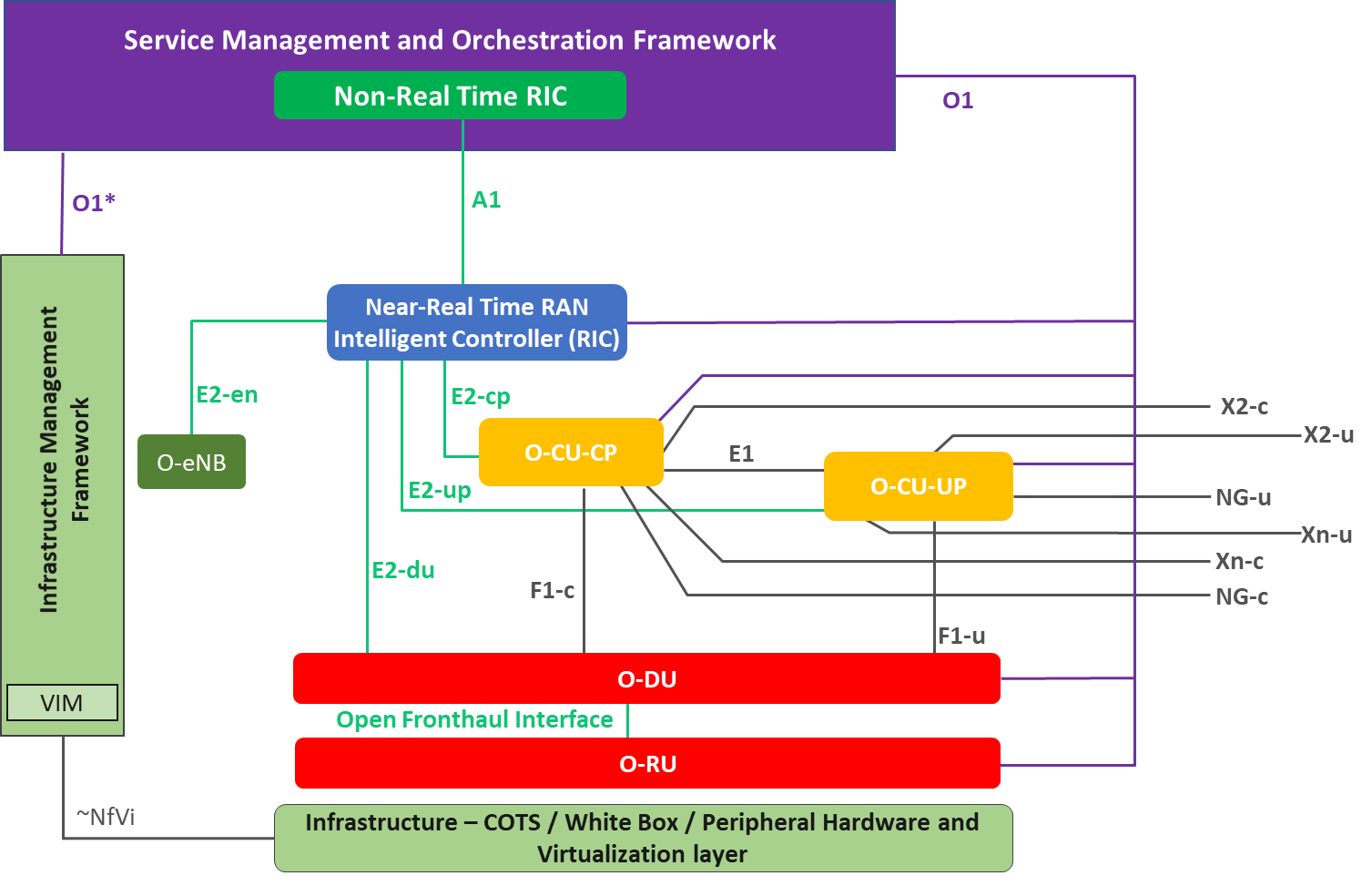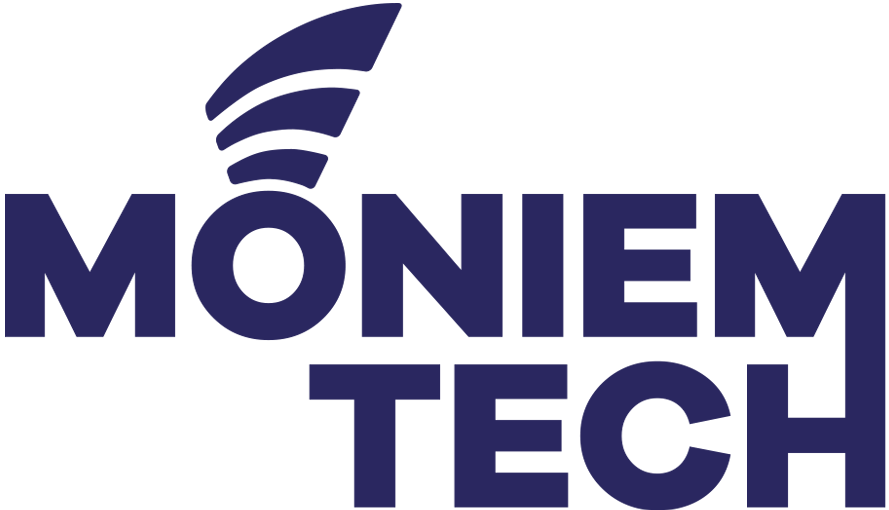O-RAN SC architecture follows O-RAN Alliance defined architecture.

In the O-RAN architecture, the radio side includes Near-RT RIC, O-CU-CP, O-CU-UP, O-DU, and O-RU. The management side includes Service Management and Orchestration Framework that contains a Non-RT-RIC function.
Components Definition
near-RT RIC: O-RAN near-real-time RAN Intelligent Controller: a logical function that enables near-real-time control and optimization of O-RAN elements and resources via fine-grained data collection and actions over E2 interface.
non-RT RIC: O-RAN non-real-time RAN Intelligent Controller: a logical function that enables non-real-time control and optimization of RAN elements and resources, AI/ML workflow including model training and updates, and policy-based guidance of applications/features in near-RT RIC.
NMS: A Network Management System
O-CU: O-RAN Central Unit: a logical node hosting RRC, SDAP and PDCP protocols
O-CU-CP: O-RAN Central Unit – Control Plane: a logical node hosting the RRC and the control plane part of the PDCP protocol
O-CU-UP: O-RAN Central Unit – User Plane: a logical node hosting the user plane part of the PDCP protocol and the SDAP protocol
O-DU: O-RAN Distributed Unit: a logical node hosting RLC/MAC/High-PHY layers based on a lower layer functional split.
O-RU: O-RAN Radio Unit: a logical node hosting Low-PHY layer and RF processing based on a lower layer functional split. This is similar to 3GPP’s “TRP” or “RRH” but more specific in including the Low-PHY layer (FFT/iFFT, PRACH extraction).
O1: Interface between management entities in Service Management and Orchestration Framework and O-RAN managed elements, for operation and management, by which FCAPS management, Software management, File management shall be achieved.
O1*: Interface between Service Management and Orchestration Framework and Infrastructure Management Framework supporting O-RAN virtual network functions.
xAPP: Independent software plug-in to the Near-RT RIC platform to provide functional extensibility to the RAN by third parties.
Source: O-RAN Alliance
